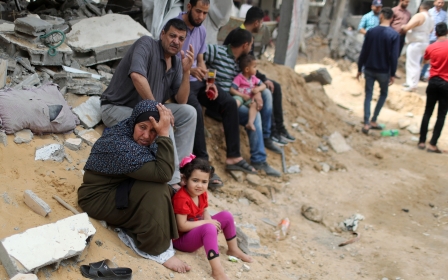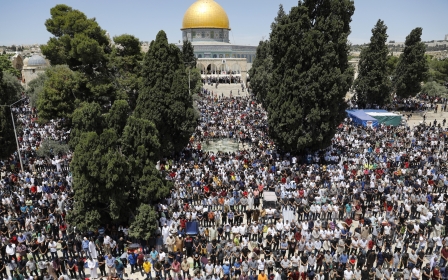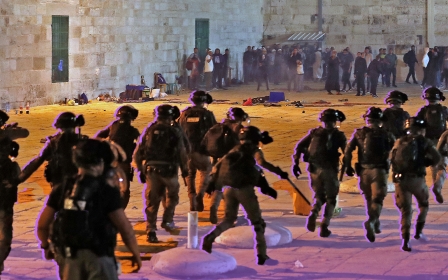In pictures: Israeli forces storm al-Aqsa Mosque on last Friday of Ramadan
Israeli forces attacked Palestinian worshippers at al-Aqsa Mosque on the last Friday of the Muslim holy month of Ramadan, after a week that has witnessed escalating tensions and violence in occupied East Jerusalem (Reuters/Ammar Awad)
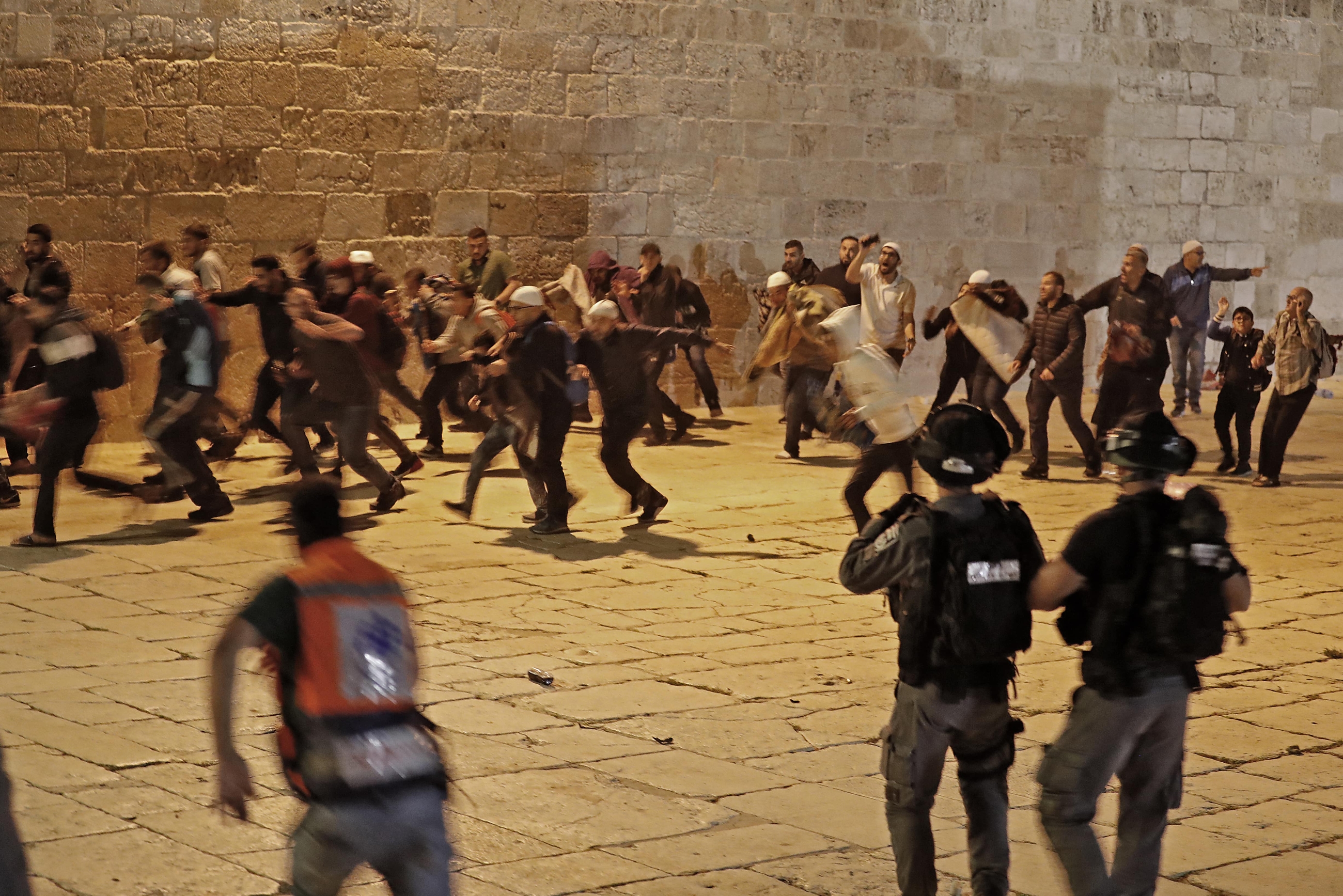
Teargas, stun grenades and rubber-coated steel bullets were used by Israeli authorities to disperse thousands of people who had gathered to pray at one of the holiest sites in Islam, which has long been a flashpoint of Israeli-Palestinian tensions (AFP/Ahmad Gharabli)
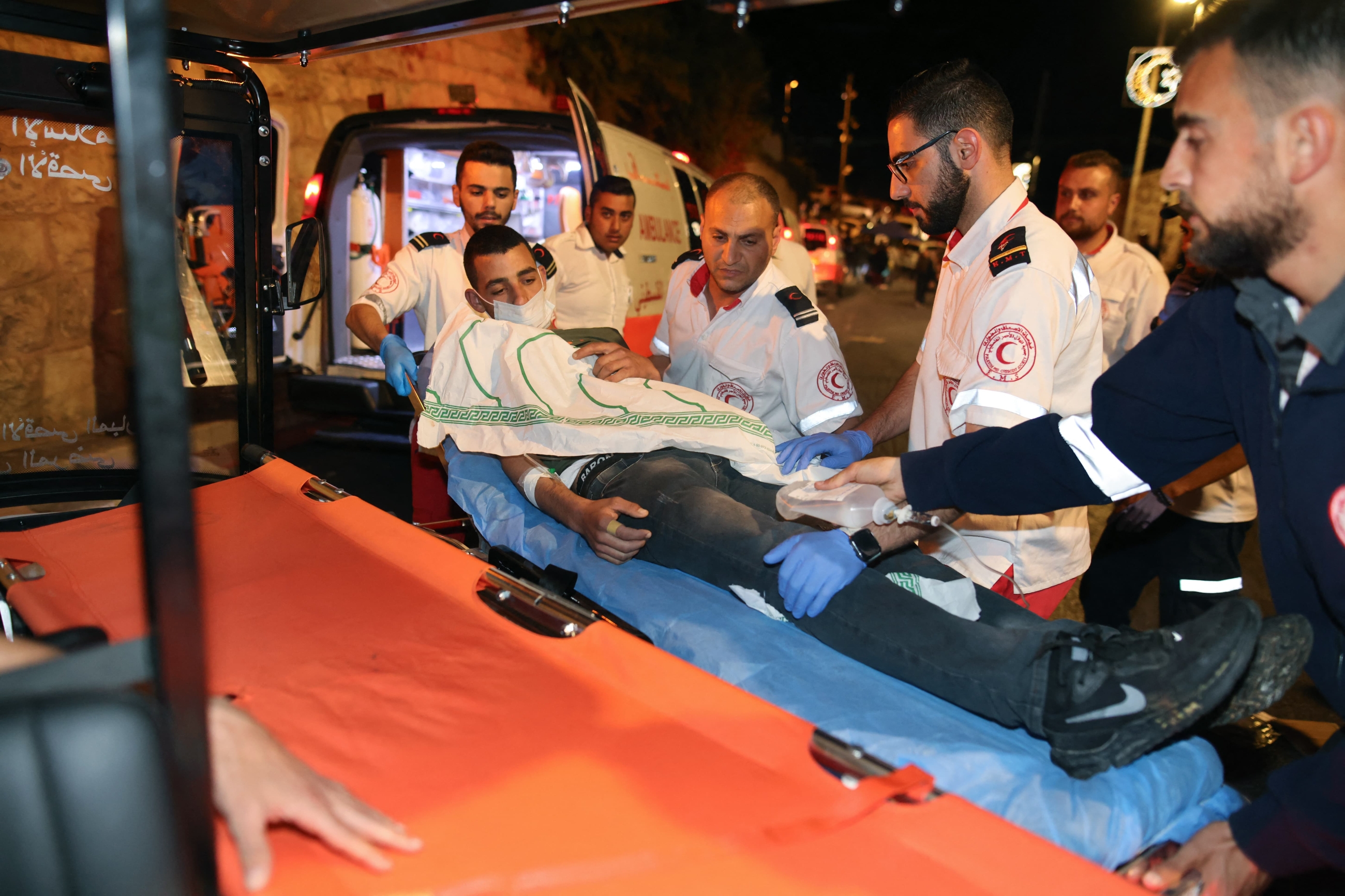
At least 205 Palestinians were injured, of whom 88 were hospitalised, according to the Palestinian Red Crescent (AFP/Ahmad Gharabli)
The Red Crescent added that one person was in a critical condition and that many of the injuries were to the head and eyes (Reuters/Ammar Awad)
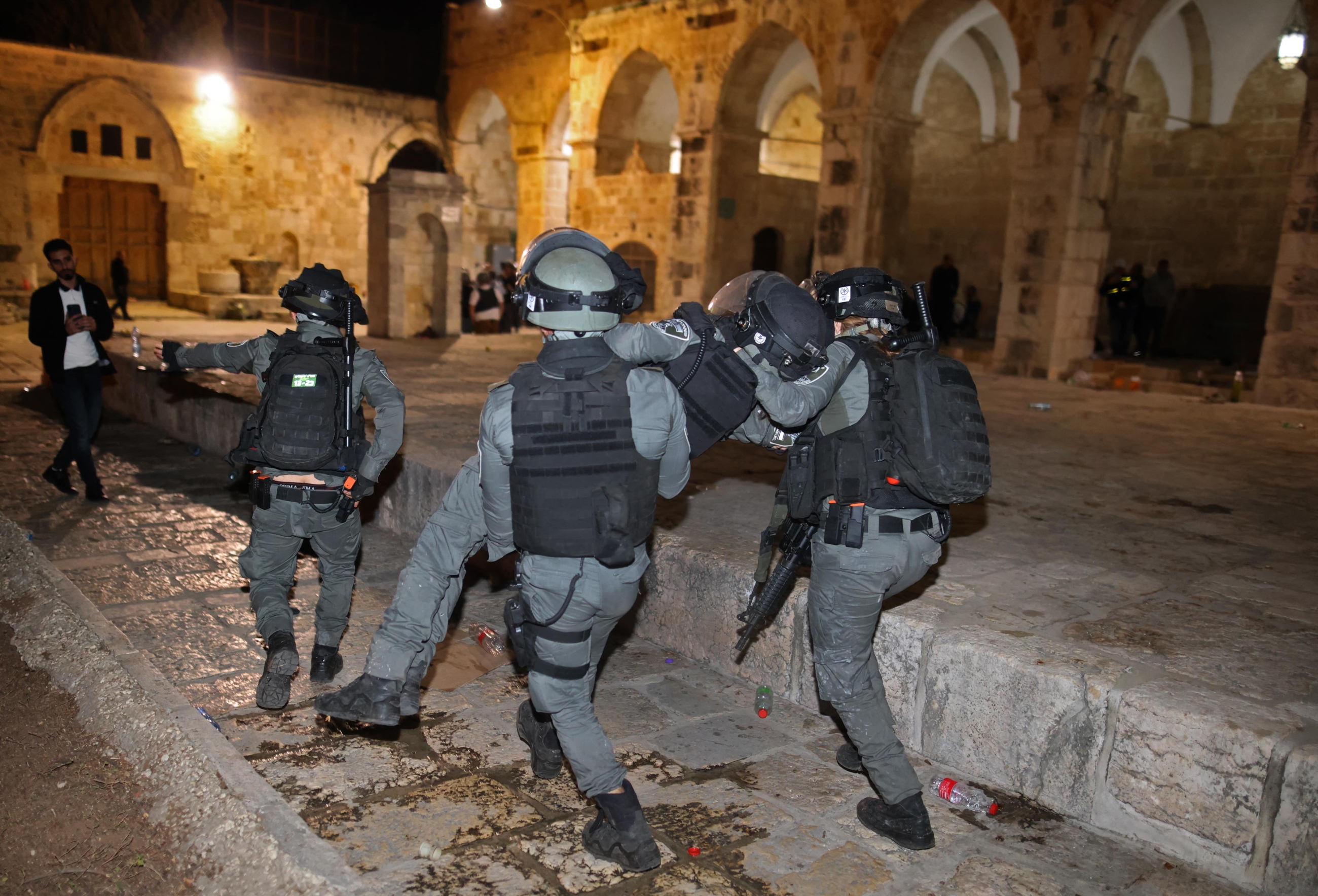
Israeli police said that six of its officers had been wounded (AFP/Ahmad Gharabli)
The storming of al-Aqsa capped days of violence, as Israeli authorities have cracked down on growing protests over the imminent eviction of six Palestinian families from the Sheikh Jarrah neighbourhood in occupied East Jerusalem (Reuters/Ammar Awad)
Following Friday prayers at the mosque, many worshippers took to the streets of the Old City to chant in solidarity with Sheikh Jarrah.
Israeli police violently dispersed the protesters throughout the day, forcing many to retreat to the al-Aqsa Mosque and hide within the confines of the shrines inside the complex (Reuters/Ammar Awad)
Videos and images emerged showing grenades being thrown at people praying outdoors, and teargas being used on those inside the shrines (Reuters/Ammar Awad)
Palestinian Authority President Mahmoud Abbas said that he held the Israeli government "responsible" for the unrest and voiced "full support for our heroes in al-Aqsa". Palestinian civil society has called for a day of anger on Saturday in response to the crackdown (Reuters/Ammar Awad)
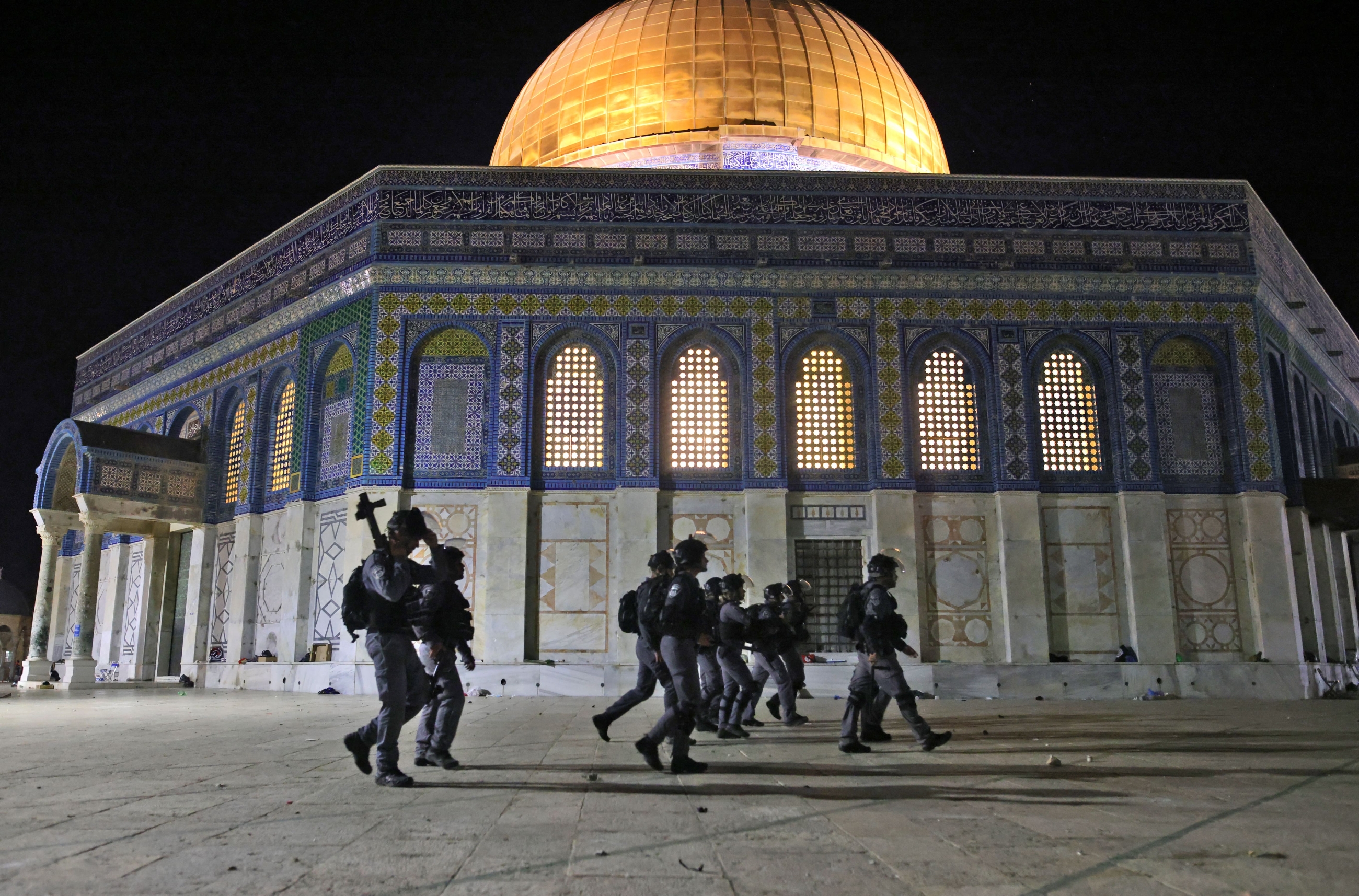
The attack by Israeli forces has drawn condemnation from countries in the region, including Qatar, Turkey, Jordan and Egypt.
The European Union, meanwhile, put responsibility on "all sides" to de-escalate tensions in the city, calling for the "status quo to be respected" in the complex (AFP/Ahmad Gharabli)
Middle East Eye delivers independent and unrivalled coverage and analysis of the Middle East, North Africa and beyond. To learn more about republishing this content and the associated fees, please fill out this form. More about MEE can be found here.


